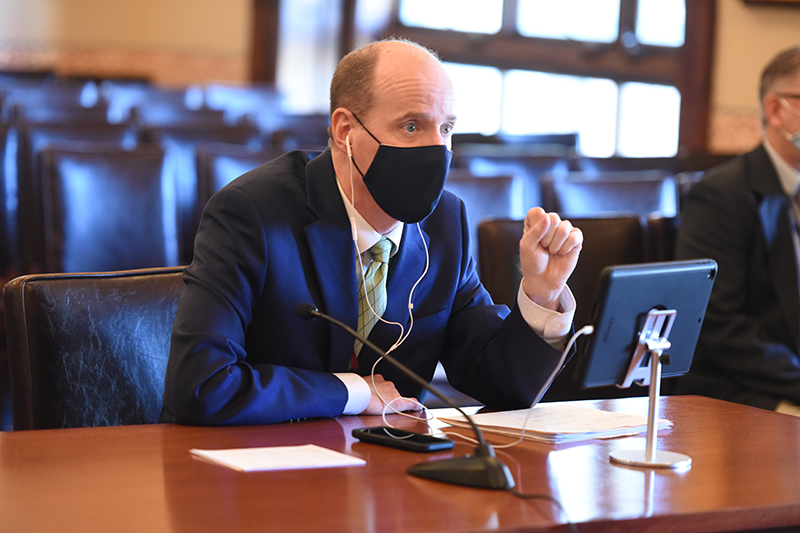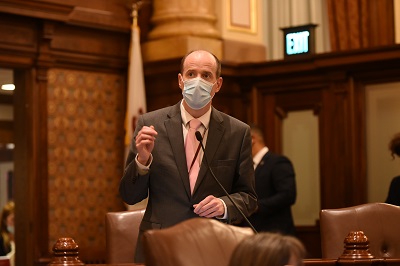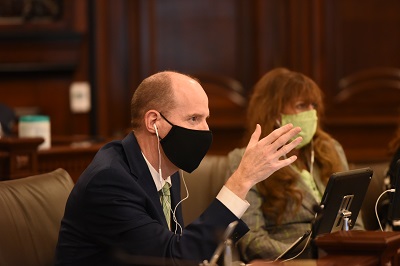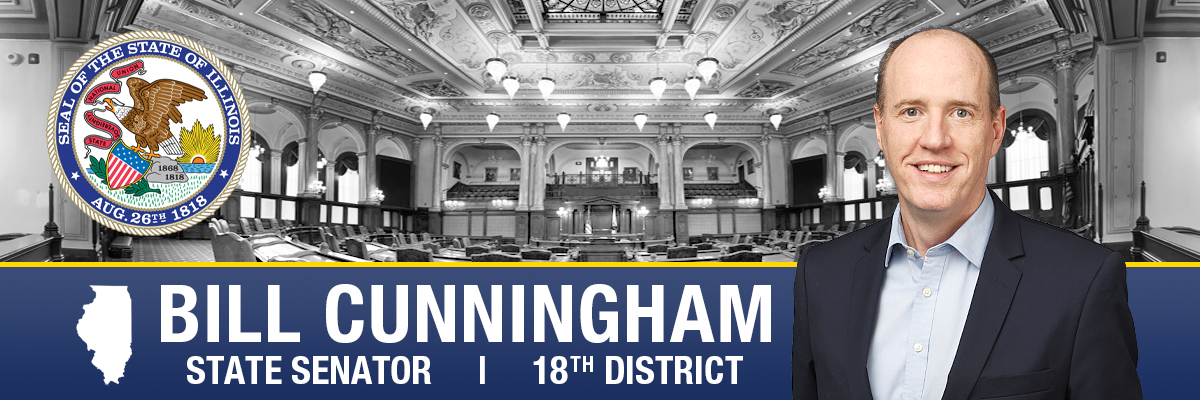New law makes U of I admissions easier for community college students
- Details
- Category: Press Releases
 SPRINGFIELD – Illinois community college students with a B-average or better will automatically qualify to transfer to the University of Illinois under a new law State Senator Bill Cunningham shepherded through the General Assembly.
SPRINGFIELD – Illinois community college students with a B-average or better will automatically qualify to transfer to the University of Illinois under a new law State Senator Bill Cunningham shepherded through the General Assembly.
“This law accomplishes two important goals: helping students attain a quality education and helping keep talented young people in Illinois,” said Cunningham, a Democrat who represents portions of Chicago and the southwest suburbs.
Under the law, the U of I will create a four-year uniform admission system pilot program, guaranteeing qualified students admission to one of the U of I system universities. In order to qualify, a student must have:
- Graduated from an Illinois high school.
- Earned at least 36 transferable credits at an Illinois community college.
- Maintained a 3.0 or better grade point average for all transferable coursework.
- Satisfied the university system’s English language proficiency requirement.
Special education students to graduate with classmates under new law
- Details
- Category: Press Releases
 SPRINGFIELD – Under a new law sponsored by State Senator Bill Cunningham and State Representative Fran Hurley, special education students will get to graduate with their classmates starting with the 2021-2022 school year.
SPRINGFIELD – Under a new law sponsored by State Senator Bill Cunningham and State Representative Fran Hurley, special education students will get to graduate with their classmates starting with the 2021-2022 school year.
“We are righting a long-standing wrong by allowing special education students to finish out their final year of school,” said Cunningham, a Democrat who represents portions of Chicago and the southwest suburbs. “Starting this year, they will get to graduate with their classmates and say proper goodbyes to their friends and teachers.”
Previous Illinois law allowed special education students to remain in school past the typical graduation age of 18, but required them to stop attending classes as soon as they turned 22. The new law, originally House Bill 40, establishes that they can finish out the year they age out of the system.
Cunningham plan gives breweries and meaderies more options to reach customers
- Details
- Category: Press Releases
 SPRINGFIELD – Senator Bill Cunningham passed a plan out of the Illinois Senate that would allow small breweries, meaderies, and winemakers to distribute their products to local bars, grocery stores, and liquor stores directly rather than through a third party, helping local businesses reach their customers.
SPRINGFIELD – Senator Bill Cunningham passed a plan out of the Illinois Senate that would allow small breweries, meaderies, and winemakers to distribute their products to local bars, grocery stores, and liquor stores directly rather than through a third party, helping local businesses reach their customers.
“We’ve seen an explosion of small beer, wine, and mead makers in recent years, and they’ve become staples of our local bar and restaurant scene,” said Cunningham, a Democrat who represents portions of Chicago and the southwest suburbs. “People want to be able to buy their products at local grocery and liquor stores, and we should make that easier to do.”
Under current Illinois law, most companies that produce alcohol have to sell their products to local grocery and liquor stores through a third-party distributor. Tracing back to the post-prohibition era, this set up is meant to help prevent the unregulated sale of alcohol and aid in the collection of alcohol-related taxes. It is still employed by almost every state in the U.S.
Plan to let special education students finish their final school year heads to governor
- Details
- Category: Press Releases
 SPRINGFIELD –State Senator Bill Cunningham advanced legislation out of the General Assembly that would allow special education students to graduate with their peers, rather than leave school the day they turn 22.
SPRINGFIELD –State Senator Bill Cunningham advanced legislation out of the General Assembly that would allow special education students to graduate with their peers, rather than leave school the day they turn 22.
“Special education students deserve a natural end to their final school year,” said Cunningham, a Democrat who represents portions of Chicago and the southwest suburbs. “They should be able to graduate with their friends and say goodbye the same way every other student does.”
Current Illinois law allows special education students to remain in school past the typical graduation age of 18, but it requires them to stop attending classes as soon as they turn 22.
More Articles …
Page 42 of 109




